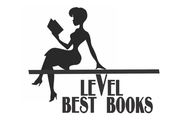|
By Bryan E. Robinson, Ph.D. When it comes to your inner critic, my advice is to not take advice from someone who doesn’t like you. That’s like returning to the perpetrator for healing after you’ve been abused. —Patrick Califia, writer
Do you hear voices in your head? Of course you do if you’re a writer. Creative people have one relentless voice, in particular, that lives in our heads and never rests—an inner critic that puts us under the microscope, bludgeons us with criticism, and tells us how worthless, selfish, dumb, or inept we are. That kick-butt voice pops up like burnt toast with such lightning speed we don’t even notice, eviscerating us with name-calling, discouragement, and putdowns. The critical voice tells you that you can’t; you should, ought to, have to, or must. It knows where you live and where to find you. And it does. When you’re working on an important deadline, it stalks you to your desk and whispers over your shoulder as you pen a manuscript. It could be scolding you right now. Listen closely. Do you hear it: “No, that’s not right! You don’t know what you’re doing! You might as well give up! Who do you think you are? You’re an imposter.” Burnt toast anyone? The critical voice in our head isn’t who we are. It’s a part of us, not all of us. It’s the lowercase “self.” Who are we, then? We are the captain of our ship—not a passenger, the coach of our team—not a player, the conductor of our symphony—not a musician, the CEO of our boardroom—not a stakeholder. We’re the true writer’s Self with a capital “S”—the writer who hears and sees the lowercase “self” or critic. There’s no use fighting, debating, or arguing with your inner critic. It always has a comeback and always wins, plus you can’t get rid of it. The key is to watch it and let it come and go without personalizing it. When we oppose or try to reason with the Critic, we give it credence and, instead of streaming on through, it takes up residence. Studies show when the critic comes down hard on ourselves after a mistake or failure, it reduces our creativity and chances of writing success. When you think about it, eviscerating ourselves after a letdown is like fighting the fire department when our house is on fire. It’s just as easy to affirm ourselves with positive messages as it is to tear ourselves down with negative ones. The best way to address the inner critic when it pops up is to observe it like you would inspect a blemish on your hand instead of reacting to it. Listen to it with a dispassionate ear as a part of you. Imagine someone scolding you over your cell phone and you hold the phone away from your ear. In the same way, you can listen to the Critic’s message from afar as a separate part from you, not all of you. In addition to hearing it as a part of you, not you, a dispassionate ear gives you distance from the Critic’s voice and keeps you from attacking yourself. Plus, it keeps you from believing the voice’s made-up story. If you’re stuck with your writing, try replacing criticism with Self-compassion (from the capital Self) each step of the way. Self-compassion is a powerful resilient tool that stands up to harm and is more likely to lead to heights of literary success. So put down your gavel and amp up your kinder, compassionate side. In times of writing struggles, give yourself pep talks, positive affirmations, and talk yourself off the ledge instead of letting your Critic encourage you to jump. Vincent Van Gogh once said, “If you hear a voice within you say, ‘You cannot paint,’ then by all means paint, and that voice will be silenced.” Bryan Robinson says, “If you hear a voice within you say, “You cannot write,” then by all means write, and that voice will be silenced.” Bryan E. Robinson is a licensed psychotherapist and author of 40 nonfiction books. He is also author of two murder mysteries—both soon to come from Level Best Books: Way DEAD Upon the Suwannee River and She’ll Be KILLING Round the Mountain. His tagline is, “I heal by day and kill by night.” He is also author of Daily Writing Resilience: 365 Meditations & Inspirations for Writers. His website is www.bryanrobinsonphd.com.
1 Comment
4/13/2024 09:42:05 am
An excellent post! I do agree that we have to listen to the voice in our brain that encourages us to write rather than the one that is critical. Creation is a process and it starts with just sitting down and writing. First drafts are never perfect or even close to perfect. But we need to just let the words flow. Changes and corrections are for later drafts.
Reply
Leave a Reply. |
Level Best AuthorsMusings from our Amazing Group of Authors Archives
July 2024
Categories
All
|
Level Best Books18100 Windsor Hill Rd
Olney MD 20832 |



 RSS Feed
RSS Feed